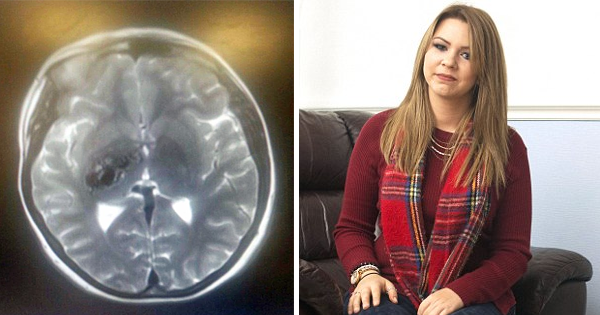Advertisement
In 2013, 23-year-old Zoe Roscoe was diagnosed with a brain arteriovenous malformations (AVM), an abnormal growth of blood vessels that has a higher risk of bleeding than normally-formed blood vessels.
It was only after she suffered from an episode that closely resembled a stroke that doctors knew to run a scan and figure out what was wrong. By that point, the condition of the blood vessels in her brain was so dangerous that her doctors called it a “ticking time bomb.”
Roscoe immediately underwent radiosurgery to have the mass of blood vessels removed before they caused her permanent harm.

Although the procedure was successful in removing the mass, it also left Roscoe with severe weakness and lack of mobility in her left side. She falls down more often and constantly loses her balance, on top of occasionally slurring her speech – all of which causes strangers to assume that she’s drunk.
For Roscoe, the entire process of being diagnosed and receiving treatment has been filled with many highs and lows. “I was relieved there was an option for treatment but I wasn't prepared for the side effects that began one year later,” she admitted. “My entire left side was left weak, I couldn't walk and my left hand was clenched closed.”
She confesses that she’s “devastated” by the damage that her brain AVM has done to her body, but she “doesn’t regret [being treated] at all.”
Though strangers’ snide comments and side eyed glances originally bothered her, Roscoe has since learned to take the high road and call them out on their judgmental behavior. “Strangers in the street assume I'm drunk if I'm struggling to walk and that's why it's so important to raise awareness for AVM's.”
Particularly because Roscoe realizes that she got incredibly lucky with her AVM treatment – to have the symptom completely removed, rather than have to live with the potential of suffering another stroke after the mass grows even more – she wants to end the prejudice and assumptions when she witnesses it happening.
“I rarely drink and it's hard enough going out alone without worrying about whether people will assume I'm drunk,” she said. “I hope if anyone ever sees myself or another person losing their balance that they won't just assume the worst.”




